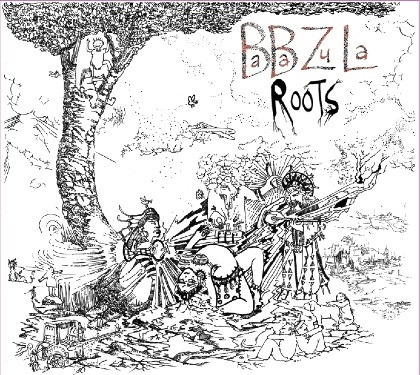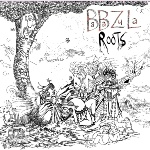- artist:Baba Zula
- release year:2007
- style(s):Dub, Oriental
- country:Türkiye
- formats:CD (Compact Disc)
- record posted by:Doublemoon Records
- label:Doublemoon Records
- publisher:Pozitif Edisyon
This story begins in Istanbul, for it was in this city that the members of Baba Zula came into being. The history they inherited is Istanbul’s history—a history that has been fortified over the centuries by a revolving door of immigrants from Turkey’s Anatolian provinces, Central Asian neighbors, and beyond. The now historical houses they lived in, the now-forgotten alleys they played in, the now-polluted bosphorus they swam in...the memories are theirs to keep and to share. BaBa Zula share their legacy with us through their music, a music born out of Istanbul and influenced by the memories of Istanbul passed on to them from generations past.
A decade and an inch has passed since BaBa Zula set out on their journey to make modern music influenced by what many may consider “vintage” traditions, instruments and recording techniques. As literate and inquisitive musicians, the members of BaBa Zula are perhaps the foremost experts on the history of their instruments in the country. Combine this academic disposition with the fact that they are natural-born Istanbul denizens and what you get is music with a solid identity with room for experimentation. Using the most symbolic instruments of Turkish culture, the wooden spoons and the saz—an instrument that comes from pre-Islamic, Asian shamanic Turkish heritage, Murat Ertel is the first to note that the saz is the only and first Turkish instrument that has been electrified. The group also called upon the talents of cult-favorite Turkish producer Mehmet Ates. This old-school recording guru provided BaBa Zula with the lo-fi, authentic rock’n roll sound that they grew up listening to in the late-60s.
This album is about “Roots” in two ways. The more obvious aspect is the fact that the band return to their original setup as a trio on this album. Over the years they have been so focused on experimenting with new sounds and influences that their albums often featured many guest performers, but on “Kökler” only the core members of the BaBa Zula family, such as vocalist Brenna MacCrimmon, can be heard. Perhaps less obvious, except to the careful listener, is the fact that BaBa Zula have a new perspective on their trademark sound “oriental dub” courtesy of the group’s first trip to Japan in the Spring of 2007. Together with a Japanese sound engineer that they befriended on that trip, BaBa Zula work Far Eastern techniques into their music which also references early African-American bluesman, psychedelia, Jamaican Nyabinghi and Dub.
BaBa Zula’s music is the product of a modern megapolis. The album is full of fun, excitement, vigor, eccentricities, oddities and tradition…A music deeply rooted in Istanbul...



